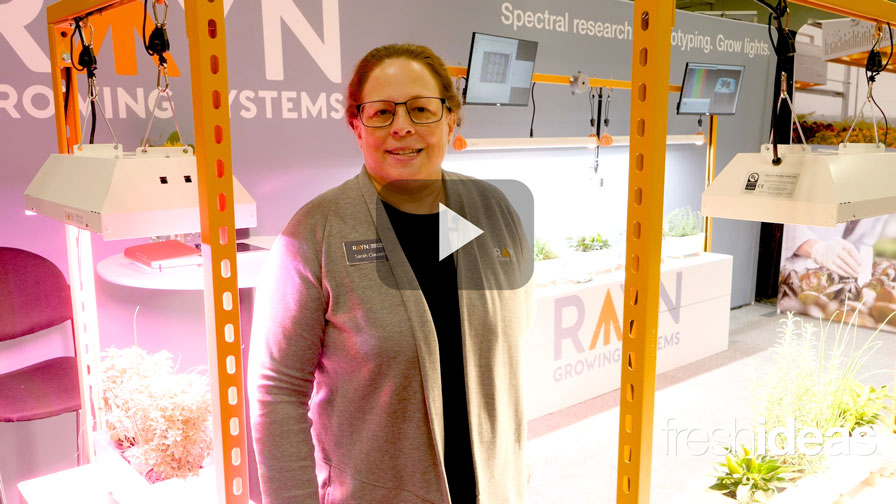Billion-Cutting Breakthrough
One billion cuttings. That’s a number we hadn’t really fathomed for as long as we’ve been ranking the world’s largest cuttings producers, but with the trend toward industry consolidation, it certainly was in reach. When Fides’ parent company, Agribio Group in Holland, purchased Guatemalan cuttings producer Oro Farms this spring, it instantly put the combined Fides Oro over the billion-cutting threshold. Fides produced 800-850 million cuttings and Oro Farms produced about 200 million.
While most of Fides’ cuttings are purchased by global fresh cut flower farms, Oro was focused on annuals and perennials. In addition to Fides’ breeding, Fides Oro is licensed to produce varieties from a wide range of breeders and agents, including Danziger, Sakata, Terra Nova, Florensis, Hem Genetics, Bartels Stek, Suntory, Cultivaris, Floranova, Lommerce, Kerley, PlantHaven, Rijnbeek & Zoon, ItSaul Plants and Westflowers.
Today, the composition of the combined Fides Oro production is 60 percent cut flower varieties, 20 percent flowering potted plants (notably kalanchoe), 18 percent annuals and 2 percent perennials. About 75 percent of the cuttings are sold to European growers, 15 percent to U.S. growers and 10 percent to other parts of the world.
In the United States, it’s easy to forget how big the global cut flower market is because most of our fresh cut flowers are imported, not produced here. And there’s a global cutting supply chain that supports fresh cut flower farms by providing propagation inputs. Cut flower production remains relatively strong in Dutch greenhouses, as well, to feed the auction system.
The second largest cuttings producer, Beekenkamp, also is based in Holland and is a leader in cut flower production as owner of Deliflor, which produces chrysanthemums. Beekenkamp has plans to increase its presence in blooming potted plants and has specialized in breeding begonias. Up until this point, U.S. growers have tried the Beekenkamp/Florema genetics through Floremara, a joint distribution venture with Holtkamp Greenhouses in Tennessee. Six more brokers in North America just picked up the Beekenkamp breeding lines – Eason Horticultural Resources, Express Seed, McHutchison, McGregor Plant Sales, Norseco and Northern Innovators.
Broker Breakups & Hookups
As the global supply chain consolidates and becomes more vertical – integrating breeding, production and sales organizations – distribution alliances are becoming more important. One summer shocker was Costa Rican cuttings producer Florexpo parting ways with broker McGregor Plants Sales after a 17-year run building business together. Florexpo retained McHutchison and Fred C. Gloeckner as broker partners but picked up a big new one, Ball Horticultural Co., to serve a mutual interest in perennials.
“Florexpo will produce the perennials Ball used to produce, and Ball will sell our combined offering with the Florexpo brand,” says Florexpo Production Manager Fernando Altman Jr. “Working together, we believe we will be able to produce the best and largest perennial program in the world, which will be reinforced on the sales side by our continued association with McHutchison and Gloeckner.”
McGregor Plant Sales President Cathy McClintock says her company has secured new supply partners for perennials and annuals, including Oro Farms, Danziger, Aris, Cohen and Athena, as well as tissue culture labs in Costa Rica, China and Holland.
Sister propagators GroLink in California and Athena in Brazil are also behaving more independently instead of having Athena’s orders flow through GroLink’s sales organization. Over the past few years, Syngenta Flowers has moved toward open distribution of its genetics in North America, Europe, Asia and the Middle East. This is largely because two breeders Syngenta acquired, Goldsmith and Fischer, had open distribution.
As an independent breeder-producer monitoring industry consolidation and breeder/broker activity, Dümmen Managing Director Perry Wismans says, ”Although we see the importance of these developments, our focus remains on the success of our customers. Most consolidations make companies spend their time internally to focus on optimizing processes and programs. Dümmen spends its time with customers to find out what their challenges are and how we can help them to overcome these.”
Raising The Bar On Service
One of growers’ biggest frustrations industrywide is not receiving the cuttings they order, whether they be delayed or substituted. To address this, Dümmen has introduced a True Grower Guarantee on key product lines – petunias, calibrachoas, verbenas, New Guinea impatiens, osteospermums, garden collection and Confetti Garden liners. “With this guarantee, we ensure on-time delivery of confirmed product,” Wismans says. “If we have to substitute or postpone confirmed orders, the affected product is free of charge. This innovative service fits our strategy to take ownership in the struggle for success of our customers.”
Growers have asked how Dümmen is able to offer such a bold guarantee. “We can fall on our face and not make any profit,” Wismans says. “Growers ask, why do you feel comfortable doing this? We have a proven track record the last two years with 98 percent order fill. If our order fill was only 90 percent, we could never do it. We’re only doing this in the U.S. market from product that originates from our new farm in El Salvador, Las Mercedes.”
Innovative varieties and programs, like the Confetti Garden multiliner, have been driving Dümmen’s growth, which is more than 20 percent in the last year. Wismans is especially excited about the new interspecific geranium lines – Cumbanita and Salsarita – which are positioned to take on Syngenta Flowers’ Calliopes and Calientes.
Ball FloraPlant General Manager Allan Davidson agrees superior service and innovative offerings are keys to success. “Reliability is king,” he says. “You also need new genetics, as well as solid-performing core products. Growers have to be able to rely on consistent supply and accurate inventories.”
One program Ball is excited about is the Mix Master line of multicutting liners, using the same 2.0 system Selecta developed for Trixi liners (see page 32). “We also offer these recipes, as well as others, to our unrooted customers, who can produce them in a multitutde of ways,” Davidson says. Ball’s Genesis callused cuttings also have been well received by growers producing geraniums and osteospermums. Scaevola, bracteantha and argyranthemum have just been added to the Genesis program, which shaves two weeks off production.
Paul Ecke Ranch’s Steve Rinehart says its new labor-saving SNAP program, shipping cuttings inserted in a special substrate in a 78 tray, is “the most revolutionary vision to U.S. plant propagation in the last 20 years. We believe this technology will continue to be a key strategy to advance how products are handled in the world. We are leading the industry in offering new production systems for growers to try.” Ecke Ranch just opened a third farm in Guatemala to support this growth.
In this ultra competitive environment, the cuttings producers that are the most responsive, innovative, reliable and easiest to do business with will win.









